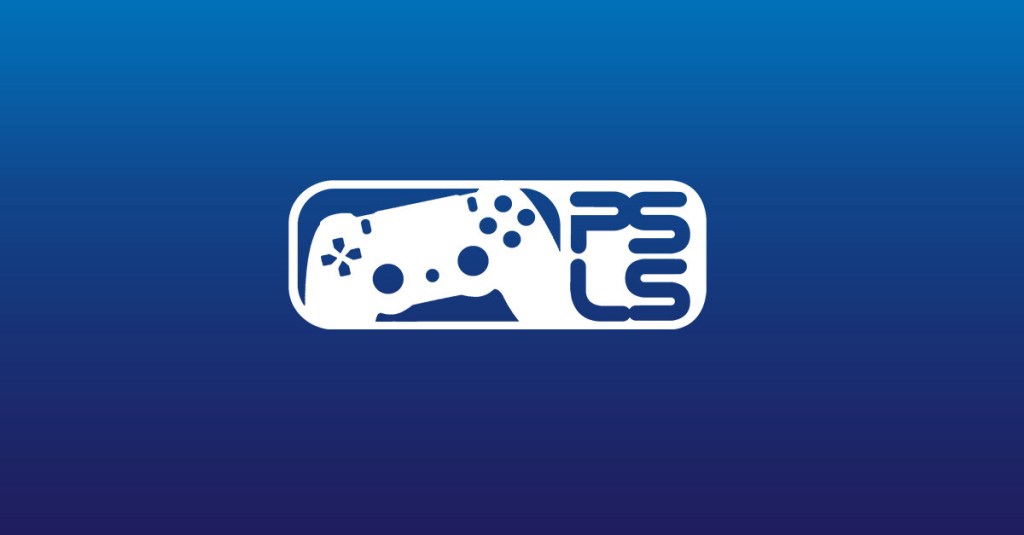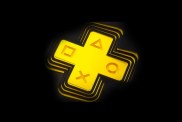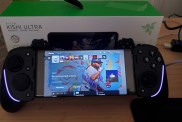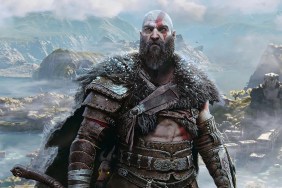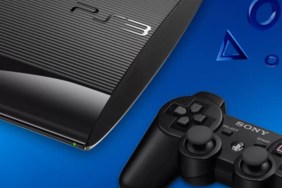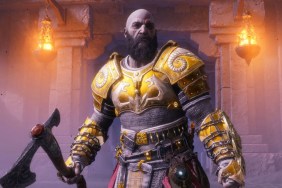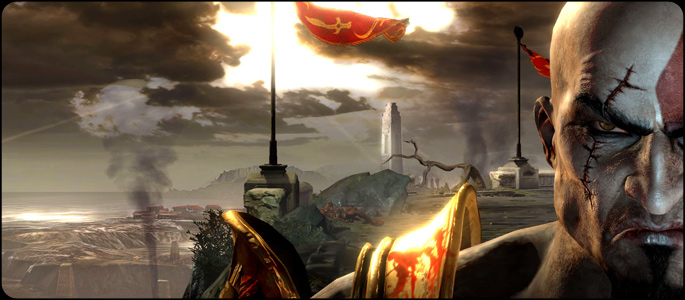
God of War III is easily the most-anticipated title ever to be released on the PlayStation 3 platform. The two previous PS2 installments and the PSP’s Chains of Olympus are all hailed as some of the best games to grace their respective platforms. God of War III not only continues upon the series’ deep-rooted heritage, but takes it to new heights beyond any and all expectations you may have.
God of War III picks up right where the previous game left off. The Titans are at war with the Gods of Olympus, and Kratos is caught dead smack in the middle of the epic showdown. From the second the game begins, you’re thrown directly into the heat of battle; traversing a lush forest environment while slashing away at sentry after sentry. However, the very ground you walk upon is actually the back of a Titan named Gaia. Although the Titans are massive, the Gods make up for their lack of size with absolute power. Zeus, along with his brothers Hades, Hermes, and Poseidon, attacks the titans in hopes of thwarting their advance on Olympus.
The God of the Sea dives into the ocean below, summoning a fleet of monsters called Leviathan to rid Mount Olympus of the giants. Kratos is tasked with taking down the Leviathan in a multi-tier fight that takes place on and inside Gaia herself. After taking down the leviathan, you’ll face off against Poseidon himself in a scene that ends so brutally, you’ll grimace with each devastating blow. All of these events unfold within the first half hour of the game, and from this point on, the action doesn’t waiver until the credits roll. The epic scale of the Titans’ desperate climb, the stunning power of the Gods of Olympus, and the relentless brutality of Kratos all set the tone for the rest of the game. What follows is one man’s journey to take vengeance against his father Zeus, the King of the Gods.
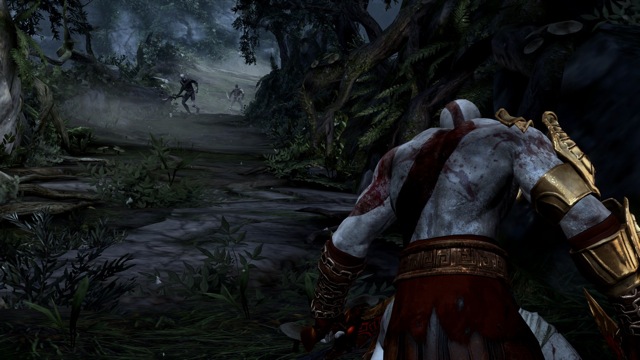
Kratos isn’t your normal game hero, he’s a merciless murderer hell-bent on revenge. His unstoppable and unrelenting anger toward the Gods has become his sole reason for living. Nothing else matters to the Ghost of Sparta other than slaying his father, Zeus. Despite the insurmountable odds he faces, Kratos doesn’t show any fear, and his fearlessness will spur you on; you’ll actually look forward to decimating the evil denizens of Greece. No matter how large or how much in number, Kratos has little trouble making quick work of his enemies. That’s not to say the game isn’t difficult, rather you’ll take such enjoyment in bathing in your enemies blood that you’ll beg for more combat.
This time around, Kratos has plenty of new moves and an all-new arsenal of godly weapons. Gone are the Blades of Chaos, and in their place, Athena bestows the Blades of Exile upon Kratos to assist him on his journey. Kratos will come across many other deadly yet useful weapons and tools along the way. Unlike the previous installments in this beloved PlayStation franchise, you’ll have to make use of each weapon frequently throughout the game. Some enemies are particularly susceptible to one weapon, while another weapon could be almost completely ineffective. You’ll have to pay close attention to the strengths of the weapons at your disposal and tactfully apply them in battle to ensure your survival.
As you progress, the onslaught of enemies gets more and more difficult to overcome, so you’ll have to continuously upgrade your weapons with the red orbs you’ve collected. Searching for hidden treasure chests also becomes vital in your quest for vengeance. Discovering Gorgon Eyes, Phoenix Feathers and new to the series, Minotaur Horns, is necessary to increase your health, magic, and item meters respectively. Without constantly honing your skills and abilities, you will fall victim to the endless assault of the perilous foes that wait.
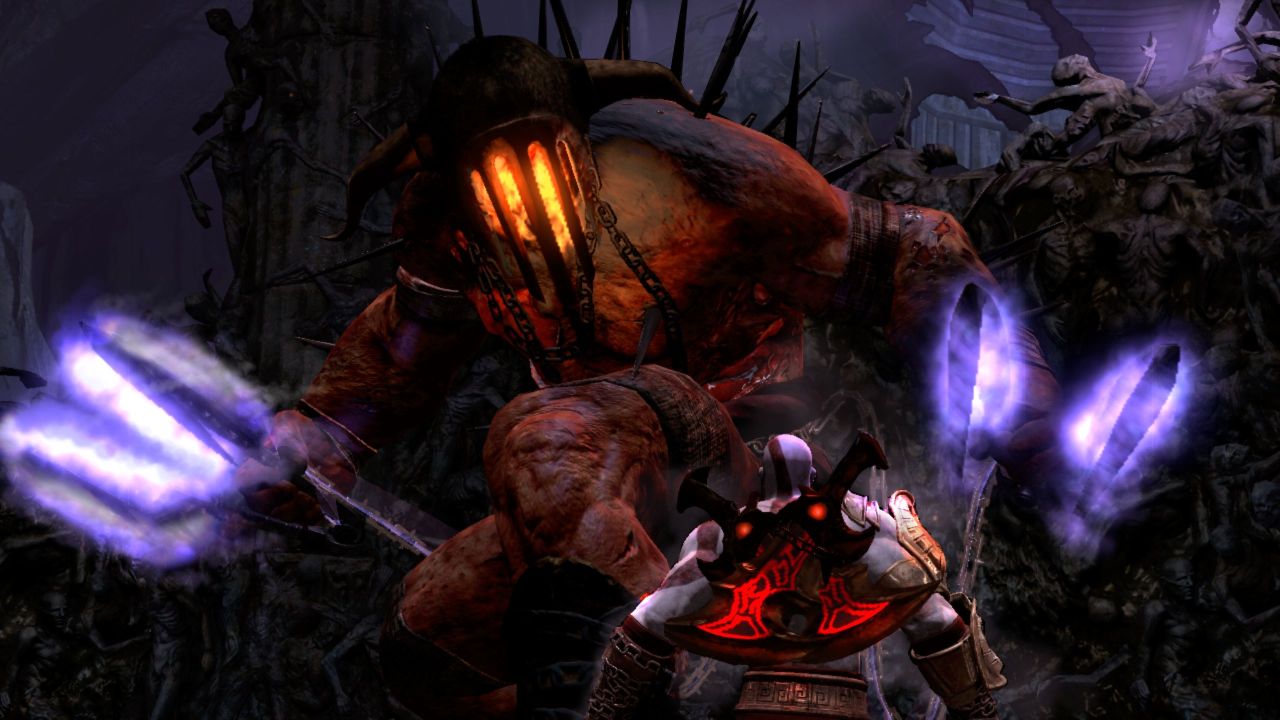
Enemies are more ferocious than ever before. The AI has received a significant boost versus the previous God of War titles; enemies will dodge, counterattack, and even team up to take down Kratos. Lesser enemies have the smarts to protect more significant boss types. Enemies also vary greatly in size, speed, agility, and strength. These differences require you to strategically select a weapon from your arsenal that will allow Kratos to more easily cut them down to size. For example, if you try to use the powerful, close-range Cestus against an enemy with speed and range, you’ll find yourself dead in no time at all. The enemies are much more difficult overall than in the previous games and you can easily be overcome by a gang of sentries if you’re not skilled enough. Throw some massive Cyclops or some speedy Wraiths into the mix, and Kratos will have a serious challenge on his hands. A whopping 50+ enemies can be on-screen at once, all with one goal: kill Kratos.
As enjoyable as it is facing off against the hordes of enemies, the real fun is in the game’s boss battles. Epic is a complete understatement to describe the encounters with the towering gods and demi-gods. Battles can be long and arduous, but you won’t mind for a second since you’ll be too busy repeatedly picking your jaws up off the floor. As you wear the bosses out, they begin to attack in desperation, unleashing some incredibly powerful blows that, if landed, could spell the end for Kratos. When the dust finally settles and you’ve slain each boss, you’ll be left panting, and your heart will be racing. Each boss battle is more monumental than the last, and many will go down in history as some of the most marvelous moments in gaming. And if the battle itself wasn’t rewarding enough, once you defeat some of these bosses, you’ll gain a weapon or power to use.
